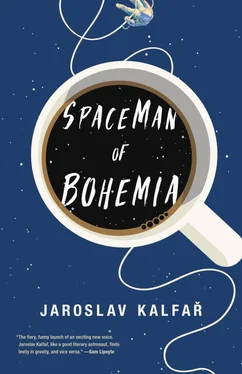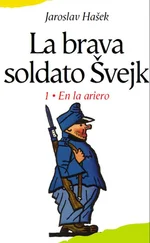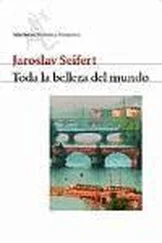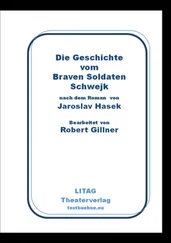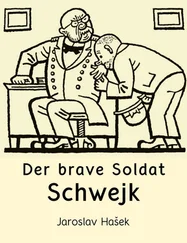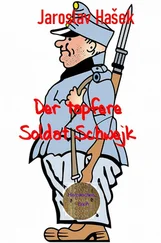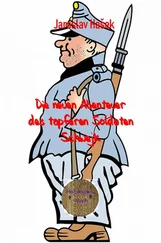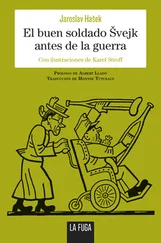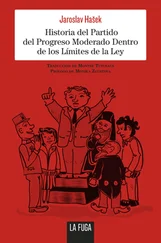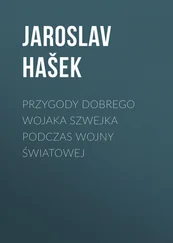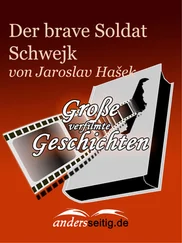What would happen if Lenka were to come back home, capture the poltergeist lurking in her space? How to explain that I had passed through the core that had seen the beginning of the world? That I had fallen through the atmosphere and crashed into a Russian lake. That I had come for her.
The third room was an undecided space. A yoga mat and weights lay in one corner, while the center was dominated by an easel supporting an unfinished painting on a large canvas. This new project was a night sky above Plzeň’s horizon. One star was particularly thick, glowing, with a tail behind it that suggested movement. This was how Lenka had seen me when I left, guessing at which of the moving reflections in the vast darkness could be her Jakub.
There was also a closet. I opened the doors and leaped into her clothing, sniffing at the familiar detergent, the armpits of blouses still holding traces of sweat mixed with deodorant, notes of her apricot perfume. As I put my face in the clothes, they began to fall, and soon I too fell to the ground, burying myself under the pile until I couldn’t breathe.
The final room was the kitchen, in which I could still smell all of Lenka’s favorites—fried eggs, bacon, the goddamn bacon, mushroom stew. There was a high bar table littered with a week’s worth of newspapers (was she still searching for articles about me, or embracing the new world without me in it?). Above the table stretched a framed photo of the sunset on a Croatian beach.
I walked back to the office at the front of the apartment. There weren’t any photos of me, no photos of our wedding. I considered rummaging through the closets to see if these items still existed, or whether Lenka had scrubbed her life clean of the reminders. Their absence wouldn’t upset me. It would bring clarity.
I exited the apartment and walked outside. If I kneeled down and put my ear to the sidewalk, would Plzeň speak to me, tell me where to search? I turned in all directions with my eyes closed and chose one at random, then embarked, knowing I would scour these streets day and night until I found Lenka.
As I stepped forward, faint music drifted from the direction of the River Radbuza. It came into sight and I realized that Lenka’s cormorant painting had been conceived at its shore. The music grew louder as I walked into the city’s historic center, where the Cathedral of Saint Bartholomew dominated the skyline. A mass of tents, stages, and food stands opened before me, organized into neat rows for the winter festival. A group of Roma musicians unleashed their soothing folk, accentuated by the smacks of steaming grog spilled upon the ground, the sizzle of onion, and above all the cheers of voices unified in the pagan ecstasy of human celebration. I entered the masses, searching above their heads. Lenka had to be here, with her love for ritual and for life. I bought a cup of grog, proof that I too belonged here, that I could still run with my kin, my species. Hours passed, the afternoon sun began to retreat, and the air grew cooler as I circled the square. Then, at a table ahead, a hand picked up a slice of bread smeared with goat cheese. The body belonging to the hand was concealed by the crowd. I tore through the mass, now seeing that those hands which had memorized my own body so thoroughly were not a mirage.
Lenka. Her sweet hands.
She paid the vendor and turned her back, the green tunic over her shoulders flowing in the wind like a queen’s robe. For a moment, the tunic slid off her right shoulder, and the few inches of bare skin inspired a lust that made me dizzy. I stumbled, but kept following nonetheless. What was the best way to approach her? I couldn’t put my hand on her shoulder before she saw me. She needed to see me first, recognize me, recognize the man who had so selfishly gone away from her to chase his own ambitions, the man who had returned now that she had made this new life to ask that she drop her solitude and, once again, change everything for him.
Lenka. Her sweet hands, the skin of her shoulders. Was I worthy of her still? I quickened my pace, pushed through the herd to get ahead of Lenka, and turned back into the lane in which she strolled. She was now walking toward me, thirty meters, twenty-five. But there were too many bodies obstructing us. My eyes sought hers, ten meters. For the first time since I had left Earth, I saw Lenka’s face clearly. Peaceful. Adoring every sight and every breath. As if the world had been her creation and she a carefree supervisor walking the floor on the seventh day of rest.
She was changed, happier than I’d ever seen her. Happier even than in our best days, our orgasmic slumber in the Orloj tower, the peak of our love. Five meters.
I froze in my steps. Lenka looked directly at me. No. She looked past me, with no sign of recognition, no acknowledgment of my material form. She walked past me. As though I were just another stranger in too large a crowd.
Could I be anything else, in the new world she had built for herself? She had to see me. There was no other way to begin anew. I cursed the enveloping masses.
I shadowed her, searching for a better opportunity as she ate boiled peanuts, purchased a few canvases, and made her way home with the setting sun. I was drunk by then, mostly on samples of liquors flowing across the border from the rest of Europe, belching menthol, caraway, and coffee from the earthy shots I had picked up as I stalked. My mind a warren of confusion, uncertain whether I belonged to Earth anymore at all. But my body ran on autopilot—where Lenka went, I went.
She retreated into her apartment and I sat on the pavement outside, down the block. The ground was cool to the touch, and the distant voices of people coming home from the festival, drunk on simple pleasures, encouraged me. The street lamps came on with their low buzz of static. A beautiful night. I imagined walking up to Lenka’s door and ringing the bell. She would have to see me then. The possibilities of her reaction terrified me, each of them bringing their own special sense of horror. If she touched me, put her arms around me, would my bones hold together? Or perhaps she would run, thinking me a corpse come to haunt her. This endless loop of thought kept me confined to the sidewalk. Her words to Kuřák replayed over and over. She wanted a life of her own, one that wasn’t overshadowed by my obsessions, my needs. And then I had seen her face in the crowd, serene and impassioned, and the lightness in her step.
Was she her happiest like this? I needed to leave Earth, pick at the particles of Space. What did Lenka need?
She walked back out of her building holding a large canvas bag, and I took cover behind a building at the end of the street. Lenka stepped toward the river. I followed her down the path, but still I kept my distance, still I could not bring myself to reenter her world. It was so easy, I had only to shout out her name, to run the short distance separating us and touch her. But with each passing moment I felt more and more like an intruder.
She set up an easel and began work on the unfinished painting of the night sky.
Her voice from Kuřák’s recording, counting up all the things I had done. Yes, the winter of 1989 was the Big Bang of my life. The guilt of my father’s servitude had followed me everywhere, leading us here.
She took a sip of something from a thermos. Coffee? Wine? All I had to do was ask.
The paint upon the easel, grains of powder and oil staining the cotton fibers, the solvent evaporating to leave a pigmented, dry oil to oxidize. This resinous film was now the new dimension of reality, confined within a rectangular cloth. A new world. A perspective. Lenka had painted the edges purple to allow for Chopra’s influence. She raised her hand to her head, and though I couldn’t see I was sure the purple on her fingers colored a streak of her hair. What if this reminder of a phenomenon so distant, yet one that uprooted our lives, remained there forever? Within the painting existed the sum of our lives. My decision to leave. My decision to put something else above Lenka. I chose the dust, I chose Space, I chose the trip to nowhere, I chose to live above humanity, I chose higher missions, I chose symbols, I chose to claw at redemption.
Читать дальше
